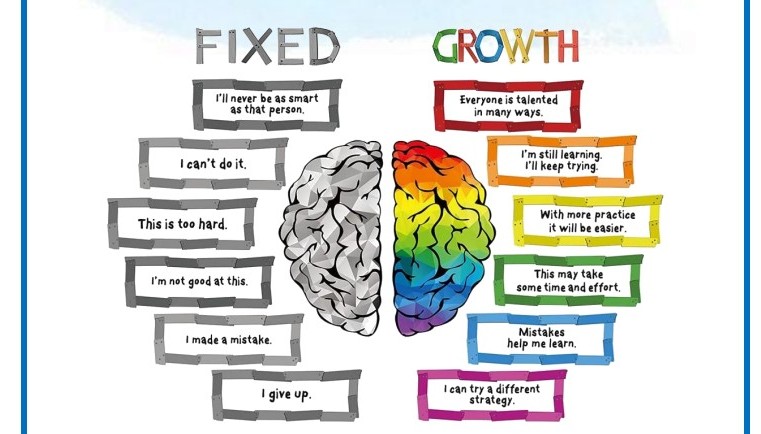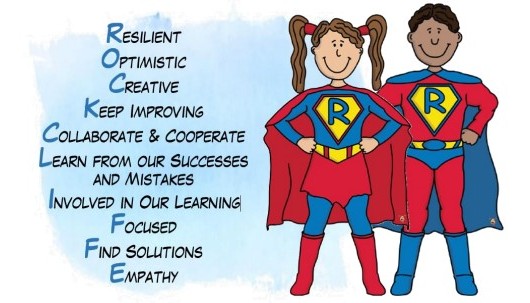Has your child ever said to you ‘There’s no point, I’ll never be able to do it’ or avoided doing something because they’ve failed at it in the past? Feelings like this can be related to what children believe about what makes them ‘good’ at something – whether it’s school work, sport, or even their ability to manage their emotions and behaviour. Some children will tend to give up on challenging tasks easily, or avoid tasks they’ve failed at before. They tend to believe that being ‘good’ at a particular activity is a fixed state, and is something they can’t control. In psychology, this way of thinking is called a ‘fixed mindset’. Others might bounce back quickly from failure and be more likely to explore how they can get better at doing something. They tend to be children who believe that you can improve your abilities by practising, or by finding a different way to achieve your goal. This way of thinking is called a ‘growth mindset’, and developing it can help make children more resilient for life.
At Rockcliffe, we want all children to reach their potential. We recognise that having a growth mindset is essential for success in all areas of life. By adopting a growth mindset, we want children to believe they can learn anything, grow in areas of challenge and work hard to solve any problem. We have approached this by developing a school-wide set of Rockcliffe Learning Superpowers, which exemplify desirable character traits. This equips children with a common vocabulary linked to their learning and personal development. Our Learning Superpowers are based on the research of leading educationalists, in particular, Shirley Clarke, Guy Claxton and Carol Dweck, who believe that non-cognitive (often referred to as ‘soft skills’) are just as important as intellectual ability. Indeed, research shows that the most persistent, self-disciplined, adaptable and reliable students and professionals outperform those with higher cognitive abilities. Non-cognitive skills include emotional maturity, empathy, interpersonal skills and verbal and non-verbal communication. Non-cognitive skills influence the overall behaviour of a person.
To help children remember our Learning Superpowers, we have created a mnemonic of ‘Rockcliffe’:
Every week, we focus on one of the Learning Superpowers, discussing and exploring it in more detail in a whole-school story assembly, using a text that features a situation, a character or a real-life individual who exemplifies it. Our weekly Superhero assembly recognises the outstanding demonstration of that week’s Learning Superpower by children in each class.
“If parents want to give their children a gift, the best thing they can do is to teach their children to love challenges, be intrigued by mistakes, enjoy effort, and keep on learning.” – Carol Dweck
Below are a few tips and ideas that can help promote a growth mindset in children:
Set high expectations for your child: Children rise to the expectations we set. Rather than lowering the bar to protect self-esteem (“Never mind, let’s try an easier one”), show them you believe they can succeed. High expectations build confidence, encourage effort, and lead to better outcomes.
Encourage children to be resilient and not give up, even when something is difficult or frustrating: We now know that the brain adapts to new information and practise by creating new connections.
Teach children that Struggle = Brain Growth.
Celebrate mistakes! They are a natural part of learning. When children fear making them, they may avoid trying at all. Help your child see mistakes as chances to grow, not something to feel ashamed of. If we’re not making mistakes, we’re not challenging ourselves!
Use inspirational role models: Talk about real-life heroes and their journey to success. If someone has done well, we have a tendency to think they were born that way. Rather than focusing on ‘natural ability’, focus on early efforts, a strong work ethic and the mistakes and learning that led them to where they are now.
Use the Word “Yet” to help reframe failure or difficulty. Instead of “I can’t do this,” say, “I can’t do this yet.” This small word reminds children that learning is a process and they can improve over time


